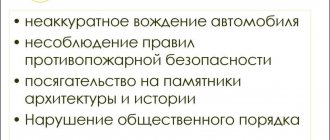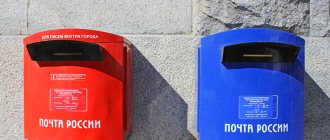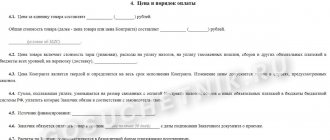Legal advice > Administrative law > Continuing administrative offense: what it is, its features and statute of limitations
The regulation of various areas of relationships in society is carried out using the special Code of the Russian Federation on Administrative Offenses (CAO RF). For any entity that risks being held accountable for an administrative offense, the question of the statute of limitations for holding accountable for such an act will be quite significant.
The Code of Administrative Offenses of the Russian Federation contains all the basic information used in legal activities to determine the statute of limitations for bringing to administrative responsibility for a specific offense. In particular, Article 4.5 plays a significant role in the activities of courts and some other bodies, while being the object of attention of legal science, legislators and law enforcement agencies.
Circumstances of the dispute
In April 2021, the Yaroslavl prosecutor's office decided to check how one of the local management companies fulfills its responsibilities for managing apartment buildings.
It turned out that “not so hot.” The supervisory agency inspected 16 high-rise buildings and found that in each of them the management company poorly monitored the condition of the common property. In some houses, for example, plaster was falling off and there were potholes in the floor. Decisions on illegal fines will be challenged... by the finers themselves
Read more…
As a result, in one day the prosecutor’s office opened 16 cases of administrative offense against the company under Art. 14.1.3 Code of Administrative Offenses (violation of licensing conditions when managing apartment buildings). Later, having considered these cases, the department of state housing supervision issued 16 decisions to bring the “managers” to administrative responsibility.
The society tried to appeal against them. A decision has not yet been made on a number of cases. In one, challenging a fine of 125,000 rubles, the company insisted that the violation committed was minor, which means it should be released from liability.
But the court did not agree with this qualification and recognized the department’s decision as legal (case No. A82-12354/2019).
The company was fined 20 million for bribing an arbitration judge
Read more…
In another case with the same fine of 125,000 rubles. The management company referred not only to the insignificance of the violation, but also to repeated prosecution.
Continuing and ongoing administrative offenses
In law enforcement practice, quite often problems arise related to the correct determination of the type of administrative offense (continuing or continuing). The importance of such a correct definition is due to the fact that in each type the statute of limitations for bringing to responsibility is calculated differently.
In case of a continued offense, the statute of limitations for bringing to justice is calculated according to the general rules for calculating time limits - from the day following the day of commission of the administrative offense (after the day of discovery of the offense), and in the case of committing an administrative offense expressed in the form of inaction, the period for bringing to administrative responsibility is calculated from the day following the last day of the period provided for the performance of the relevant obligation. In case of a continuing offense, the terms begin to be calculated from the date of discovery of the administrative offense (it must be borne in mind that the day of discovery of a continuing administrative offense is considered the day when the official authorized to draw up a protocol on the administrative offense revealed the fact of its commission)[1].
The expiration of the statute of limitations, as indicated in paragraph 6 of part 1 of Article 24.5 of the Code of Administrative Offenses of the Russian Federation, is a circumstance due to which proceedings in a case of an administrative offense cannot be started, and the started proceedings are subject to termination.
Accordingly, an incorrect definition of the type of offense may lead to unjustified prosecution of administrative liability or, conversely, evasion of it. Thus, the objectives of the legislation on administrative offenses established by Art. 1.2 of the Code of Administrative Offenses of the Russian Federation will not be resolved.
There is no definition of either a continuing or continuing offense in the Code of the Russian Federation on Administrative Offenses (hereinafter referred to as the Code of Administrative Offenses of the Russian Federation). However, paragraph 14 of the Resolution of the Plenum of the Supreme Court of the Russian Federation dated March 24, 2005 N 5 “On some issues that arise for the courts when applying the Code of the Russian Federation on Administrative Offenses” (hereinafter referred to as Resolution of the Plenum of the Supreme Court of the Russian Federation N 5) states that such an administrative offense is continuing (action or inaction), which is expressed in long-term continuous failure or improper fulfillment of duties provided for by law[2].
The definition of a continuing administrative offense is not formulated in current official documents. In this article, a continuing offense will be understood as a single offense continued over time, consisting of the commission by a person of two or more identical independent illegal actions (inactions).
To better understand the differences between these two types of administrative offenses, let’s give an example: if you listen to music loudly for a week, month, etc., without turning it off, then this is a continuing offense. If you turn it off periodically, then this is a continuing offense.
From the resolution of the plenum of the Supreme Court of the Russian Federation No. 5, the following signs of a non-continuing offense can be identified:
The offense (action or inaction) involved the cessation of non-fulfillment or improper fulfillment of duties provided for by law; The essence of the offense was expressed in failure to fulfill the prescribed obligation by the established deadline (the Code of Administrative Offenses of the Russian Federation provides for the only case of suspension of this period. This case is the satisfaction of the petition of the person against whom the proceedings are being carried out in a case of an administrative offense, on consideration of the case at the place of his residence, when the time of sending the case is not included in the statute of limitations for bringing to administrative responsibility.By virtue of Part 5 of Article 4.5 of the Code of Administrative Offenses of the Russian Federation, the running of the said period is suspended from the moment this petition is satisfied until the receipt of the case materials judge, body or official authorized to consider the case at the place of residence of the person in respect of whom the proceedings are being conducted).
However, these criteria do not always help courts determine what type of offense it is.
Let us consider the problems of judicial practice affecting the characteristics of ongoing offenses. Let's start with cases of emissions of harmful substances into the environment (using the example of violations of water use rules when discharging wastewater into water bodies and releasing harmful substances into the air)[3]. Both of these types of offenses are essentially identical: they represent a time-limited action to release harmful substances into the atmosphere. Consequently, judicial practice under Articles 8.14 and 8.21 of the Code of Administrative Offenses of the Russian Federation should be considered in a single context.
In most cases, courts do not write whether offenses under these articles are continuing[4]. The lack of definition of the type of offense may indicate that the courts do not treat emissions of harmful substances as a continuing offence.
In support of this point of view, there are regulations that indicate that these offenses are not continuous. For example, the Danilovsky District Court of the Volgograd Region considered case No. 12-21/2015[5]. By resolution of the territorial administrative commission of the Danilovsky municipal district of the Volgograd region, FIO was found guilty of violating the procedure for handling household waste on the territory of the settlement. But the offender believed that the decision was made after the deadline for bringing him to administrative responsibility had expired. The representative of the territorial administrative commission of the Danilovsky municipal district of the Volgograd region did not agree at the court hearing, explaining that the administrative offense committed by the full name is ongoing, therefore the period is calculated from the day the administrative offense was discovered. The court considered that the arguments that the administrative offense committed by FIO is ongoing are untenable. As a justification, the judge cited paragraph 14 of Resolution of the Plenum of the RF Armed Forces No. 5, but the court did not explain why this particular offense was not considered ongoing. The resolution was canceled due to the provisions of paragraph 6 of part 1 of article 24.5 of the Code of Administrative Offenses of the Russian Federation, because the statute of limitations for bringing a full name to administrative responsibility established by part 1 of article 4.5 of the Code of Administrative Offenses of the Russian Federation (2 months) had expired.
The decision of the Zlatoust City Court of the Chelyabinsk Region[6] dated November 10, 2016 considered the case of the release of harmful substances into the air by PKU IK-25 GUFSIN. In this decision, the court did not indicate whether this offense was ongoing. As follows from the case materials, during a scheduled on-site inspection by the state inspector of the Russian Federation in the field of environmental protection for the Chelyabinsk region dated September 27, 2021, a protocol on an administrative offense was drawn up, in which it was recorded that FKU IK-25 GUFSIN of Russia for the Chelyabinsk region in 2015, production and economic activities were carried out, resulting in emissions of pollutants into the air. Part one of Article 4.5 of the Code of Administrative Offenses of the Russian Federation states that “a decision in a case of an administrative offense cannot be made after two months (in a case of an administrative offense considered by a judge - after three months) from the date of commission of the administrative offense, for violation of the legislation of the Russian Federation.” Federation in the field of environmental protection and natural resource management." Based on the case materials, it can be established that the decision was made later than this period. In case of a continuing administrative offense, the terms begin to be calculated from the date of discovery of the administrative offense. Consequently, the court may not have indicated that the offense was a continuing offense, but by default accepted it as such.
There are court decisions in which these offenses are characterized as continuing[7]. The Kamchatka Regional Court[8] found that the director of the Ossorskoe Housing and Communal Services Municipal Unitary Enterprise Podkopaev A.V. allowed the release of pollutants into the environment without the appropriate permit. The court classified this case as ongoing, citing the reason that there was a “long-term, continuous failure to comply with the requirements of the legislation of the Russian Federation in the field of natural resource management and environmental protection.” However, releases of pollutants into the environment represent only a series of systematic actions united by a single intent, which is not a continuing offense by definition.
The resolution of the Kemerovo Regional Court[9] dated October 14, 2015 deals with the case against Evrazruda OJSC, which has already been brought to administrative responsibility for discharging pollutants in the period from April 2013 to December 2013 and March 26, 2014. lack of permission to discharge pollutants into the environment (water bodies). On June 23, 2014, an administrative violation case was once again initiated against Evrazruda OJSC for the discharge of pollutants on January 13, 2014, February 3, 2014 and March 5, 2014 in the absence of a permit. The Kemerovo Regional Court decided that “the specific date of discharge of pollutants - March 5, 2014, established by the court, is covered by the period of the ongoing offense that took place in the period from April 2013 to March 26, 2014,” therefore, the newly discovered offenses form one offense with those , for which Evrazrud OJSC has already been brought to justice, therefore, it is no longer possible to bring it to justice again (repeated prosecution of a person for the same offense is unacceptable, even if it was revealed as a result of different inspections carried out by the same administrative body) [10 ]. The court recognized the offense of emissions into the atmosphere as continuing, despite the fact that there are interruptions in the actions of the offender, which contradicts the very concept of a continuing offense.
Supreme courts do not speak out on this issue[11]. Thus, in case No. 303-AD14-5393, the limited liability company RN-Sakhalinmorneftegaz was found guilty of committing an administrative offense, expressed in the implementation by the company of emissions of pollutants into the atmospheric air in the period from the fourth quarter of 2012 to the first quarter of 2013 without special permissions. The Supreme Court does not determine precisely whether the offense is a continuing offense. He only says that “the emission by society of harmful (pollutant) substances into the atmospheric air from all sources without appropriate permission constitutes one offense.”
Let us consider the judicial practice in cases of failure to restore public amenities. Clause 14 of the Resolution of the Plenum of the Supreme Court No. 5 states that “failure to fulfill the obligation provided for by the named legal acts by the established deadline indicates that the administrative offense is not ongoing.”
There is still debate in science about this criterion for determining ongoing offenses. D. N. Bakhrakh believes that this provision is unnecessary, since “before the expiration of the period for fulfilling the obligation, the act is not an offense at all.” And “on the day following the expiration of the period, the act becomes a beginning and continuing offense and only in the following days is considered a continuing offense”[12].
However, P.P. Serkov does not agree with the above position of D.N. Bakhrakh. He expresses the point of view that “non-execution, improper execution of a legal order at a specific time indicates that an objective side of a specific administrative offense has arisen. In turn, the possibility of determining the moment of its commission allows us to establish the beginning of the statute of limitations for bringing to administrative responsibility”[13].
The decision of the St. Petersburg City Court established that Roskar Trade LLC committed an administrative offense in the form of failure to restore amenities damaged after excavation work[14]. The court recognized this administrative offense as continuing, since “failure to restore amenities damaged after excavation work begins upon completion of the work performed and continues until the day the administrative offense is discovered.”
At the same time, the Second Arbitration Court of Appeal found that OJSC Kirov Heat Supply *** was issued an order on May 19, 2015 to eliminate the identified fire safety requirements, but it did not eliminate them[16]. The court indicated that failure to fulfill the obligation provided for by the said legal acts by the established deadline indicates that the administrative offense is not ongoing.
The Arbitration Court of the Far Eastern District indicated that violation of fire safety regulations is a continuing offense[17]. An administrative penalty was imposed on Artemovsky Bread Factory OJSC, the reason for which was violations of fire safety requirements identified during an inspection carried out from May 27, 2014 to June 17, 2014. The court ruled that “the violations of fire safety requirements committed by the company are ongoing, since they were not due to compliance with fire safety requirements within the established time frame, and were expressed in a long, continuous failure to fulfill the duties assigned to it.”
More often, courts recognize violations in the field of fire safety as ongoing. In particular, the Supreme Court of the Russian Federation, in a case dated July 29, 2016, indicated that the FGKU Rechnoy plant of Rosrezerva violated fire safety requirements, and the Supreme Court recognized this offense as continuing, but it did not justify its point of view[18].
It should be noted that in terms of their structure, offenses in the field of violation of landscaping and violations of fire safety equipment are identical, but the courts are inclined differently to classify the categories of these cases as continuing.
It is also necessary to consider cases under Part 1 of Article 18.8 of the Code of Administrative Offenses of the Russian Federation (evasion of leaving the Russian Federation after a certain period of stay). The Amur Regional Court found that during an inspection of compliance with migration legislation, a citizen of a foreign state, A., was identified who did not leave the Russian Federation after the expiration of his temporary stay (until July 24, 2007)[19]. The lower court (Romnensky District Court) did not recognize this offense as continuing, since it considered it a failure to fulfill the obligation on time and terminated the proceedings. The court referred to paragraph 14 of the Resolution of the Plenum of the RF Armed Forces No. 5, according to which the statute of limitations for bringing to justice is calculated according to the general rules for calculating time limits - from the day following the day the administrative offense was committed (the day the offense was discovered). According to the judge, since the visa expired on July 24, 2007, then a one-year period of time for bringing A. to administrative responsibility under Part 1.1 of Art. 18.8 of the Code of Administrative Offenses of the Russian Federation expired on July 24, 2008.
The judge of the Amur Regional Court said that the offense charged by A. in the field of violation of migration legislation, expressed in evading departure from the territory of the Russian Federation after the expiration of the period of stay, is ongoing, since A. did not fulfill the duties assigned to him by law for a long time.
In another similar case, the lower court (Anzhero-Sudzhensky City Court) also did not recognize evasion from leaving the Russian Federation after a certain period of stay as a continuing offense, since failure to fulfill the obligation provided for by legal acts by the established deadline indicates that an administrative offense is not lasting[20].
But the judge of the Kemerovo Regional Court did not agree with this, arguing his decision by saying that if a foreign citizen did not leave the territory of Russia after the expiration of the period established by law, his actions constitute an administrative offense, the objective side of which is expressed in the stay of such a person in territory of the Russian Federation without documents confirming the right to stay (reside) in the Russian Federation, since a visa or migration card after its expiration cannot be considered documents confirming the legality of a foreign citizen’s stay on the territory of Russia.
There is a decision of the Supreme Court, which considers the case under Part 1.1 of Art. 18.8, but it does not indicate whether the offense is a continuing offense[21].
In 2015, drafts of a new Code of Administrative Offenses were submitted to the State Duma of the Russian Federation for consideration. The draft of Alexander Ageev, a deputy of the State Duma, who introduced the draft Code of the Russian Federation on Administrative Responsibility (hereinafter referred to as the Code of Administrative Responsibility of the Russian Federation), provides for a definition of a continuing administrative offense - “A continuing administrative offense, that is, a single illegal action (inaction) not interrupted in time, provided for any article (part of an article) of the Special Part of this Code or the law of a constituent entity of the Russian Federation on administrative responsibility.” A definition of a continuing offense is also given - “the commission by a person of two or more identical independent unlawful actions (inaction) as episodes of a single unlawful behavior continued over time, qualified under one article (part of an article) of the Special Part of this Code or the law of a constituent entity of the Russian Federation on administrative liability[22 ]".
Also, the draft Code of Administrative Offenses was submitted to the State Duma by deputies V.A. Vasiliev, V.N. Pligin, S.A. Popov, D.F. Vyatkin, V.A. Ponevezhsky. This draft establishes the definition of a continuing offense: “A continuous administrative offense is recognized as a single administrative offense that is not interrupted in time, which is expressed in a long-term continuous failure or improper fulfillment by a person of the duties assigned to him, established by law or other regulatory legal act. An administrative offense expressed in failure to fulfill an obligation stipulated by legal acts by the established deadline is not a continuing offense.” The code also contains a definition of a continuing offense - “a single administrative offense that consists of a number of actions or inactions that are similar in direction and content”[23].
Based on the results of the examples discussed above, we can conclude that under similar circumstances of the case, depending on the discretion of the judge, the same offenses are either classified as ongoing or not, which affects both the outcome of a particular case and the formation of judicial practice for continuing offenses in general. Based on the above judicial practice, it can be concluded that clear criteria for determining a continuing offense in some cases have not been developed. Therefore, there is a need for the above categories of cases to be tried by the Supreme Court so as to clearly indicate to the courts what type of offense they fall into. It is also considered necessary to include definitions of a continuing and continuing offense in the Code of Administrative Offenses of the Russian Federation.
[1] Clause 14 of the Resolution of the Plenum of the Supreme Court of the Russian Federation dated March 24, 2005 N 5 “On some issues that arise for courts when applying the Code of the Russian Federation on Administrative Offences”
[2] Clause 14 of the Resolution of the Plenum of the Supreme Court of the Russian Federation dated March 24, 2005 N 5 “On some issues that arise for courts when applying the Code of the Russian Federation on Administrative Offenses”
[3] Art. 8.14; 8.21 Code of Administrative Offenses of the Russian Federation
[4] Decision in case No. 12-269/16 of the Zlatoust City Court of the Chelyabinsk Region 11/10/2016 // SPS Consultant Plus
Decision of the Supreme Court of the Russian Federation dated October 13, 2016 N 81-AAD16-14 // SPS Consultant Plus
[5] Decision No. 12-21/2015 of the Danilovsky District Court of the Volgograd Region dated 05/08/15. URL: https://sudact.ru/regular/doc/34JJz1Q2l5YW/. Date of access: 05/31/2017
[6] Decision in case No. 12-269/16 of the Zlatoust City Court of the Chelyabinsk Region 11/10/2016 // SPS Consultant Plus
[7] Decision of the Smirnykhovsky District Court of the Sakhalin Region) No. 12-44/2016 dated May 12, 2016 // SPS Rospravosudie
[8] Decision of the Kamchatka Regional Court No. 21-493/2016 dated September 21, 2016. URL: https://sudact.ru/regular/doc/xFNAMK4dluWx/. Date of access: 05/31/2017
[9] Resolution of the Kemerovo Regional Court of October 14, 2015 in case No. 4a-931/2015 // SPS Consultant Plus
[10] Art. 4.1 Code of Administrative Offenses of the Russian Federation
[11] Resolution of the Supreme Court of the Russian Federation dated June 3, 2015 N 303-AD14-5393 in case N A59-1480/2014 // SPS Consultant Plus
[12] Bakhrakh D.N. Problems of ongoing offenses // Modern law. 2005. No. 11. P. 41-42.
[13] Serkov P.P. Administrative responsibility in Russian law: modern understanding and new approaches. M. Norma: INFRA-M, 2012. P. 130
[14]Decision of the St. Petersburg City Court dated October 8, 2015 No. 7-1185/2015 in case No. 12-291/2015 // SPS Consultant Plus
[15] Resolution of the Second Arbitration Court of Appeal dated March 3, 2015 in case No. A28-10559/2014 // SPS Consultant Plus
[16] Decision of the Moscow City Court dated September 26, 2016 in case No. 7-11037/2016 // SPS Consultant Plus
[17] Resolution of the Arbitration Court of the Far Eastern District dated April 15, 2015 N F03-1129/2015 // SPS Consultant Plus
[18] Resolution of the Supreme Court of the Russian Federation dated July 29, 2016 N 310-AD16-2724 in case N A23-4959/2014 // SPS Consultant Plus
[19] Resolution of the Amur Regional Court dated December 17, 2015 in case No. 4A-775/2015 // SPS Consultant Plus
[20] Decision of the Kemerovo Regional Court in case No. 12-555/16 dated June 27, 2016 // SPS Consultant Plus
[21] Resolution of the Supreme Court dated February 24, 2015 N 86-AD15-1 // SPS Consultant Plus
[22] Art. 16 of draft N 917598-6 Code of the Russian Federation on Administrative Responsibility (as amended by the State Duma of the Federal Assembly of the Russian Federation, text as of October 30, 2015)
[23] Art. 3.3 of the Draft Federal Law N 703192-6 “Code of the Russian Federation on Administrative Offenses (General Part)” (as amended by the State Duma of the Federal Assembly of the Russian Federation, text as of 01/20/2015)
Decisions of lower courts
The Arbitration Court of the Yaroslavl Region satisfied the claim of the management company, declaring the department's resolution illegal. Deficiencies in the management of 16 houses, which the prosecutor's office identified during one inspection, constitute a violation of the terms of one license, the first instance noted.
That is, we are talking about one administrative offense, and not about 16, as the prosecutor’s office and the department decided. Since the company has already received a fine of 125,000 rubles for it. and the court confirmed it, then it is impossible to punish for the same thing a second time, the Arbitration Court of the Yaroslavl region decided. The court declared this decision illegal and overturned it.
The RF Armed Forces protected the company from a fine for misuse of land
Read more…
The AC of the Volga-Vyatka District had a different opinion. He noted that the management company manages various apartment buildings on the basis of separate agreements.
In turn, the prosecutor's office conducted 16 independent inspections and identified various violations in each house.
Thus, the circumstances that became the basis for bringing the company to administrative responsibility (place, grounds) are different, the district court established. That is, the management company must be held accountable for each of the violations, the Volga-Vyatka District Administrative Court emphasized, and sent the case for a new consideration to the Yaroslavl Region Administrative Court.
What are the types of administrative deadlines?
Administrative statutes of limitations are established by Art. 4.5 Code of Administrative Offenses of the Russian Federation. These are the deadlines:
- General – 2 months. (if the case is being considered by the traffic police, the Federal Customs Service, the Federal Tax Service or another department, or its authorized employee) and 3 months. (if the administrative case has been submitted to a judge for consideration).
- Special - may provide for 6 years of limitation (minimum 1-3 years).
Special statutes of limitations are established for various types of offenses listed in Art. 4.5 Code of Administrative Offenses of the Russian Federation.
Position of the RF Armed Forces
The “managers” did not agree with this outcome and appealed to the Supreme Court. Motivation: the fact that violations were identified in relation to each house does not indicate the commission of several independent offenses. Each of them is qualified as a violation of licensing requirements and forms a single offense, the management company indicated in its cassation appeal.
Fines for “elusive” people have been introduced in Russia
Read more…
As a result, the “troika of judges” of the Supreme Court of the Russian Federation overturned the decision of the district court and upheld the decision of the first instance (case No. A82-12352/2019). That is, violation of licensing requirements when managing 16 houses is one act, and cannot be punished for it again. The motivation will be published later.








